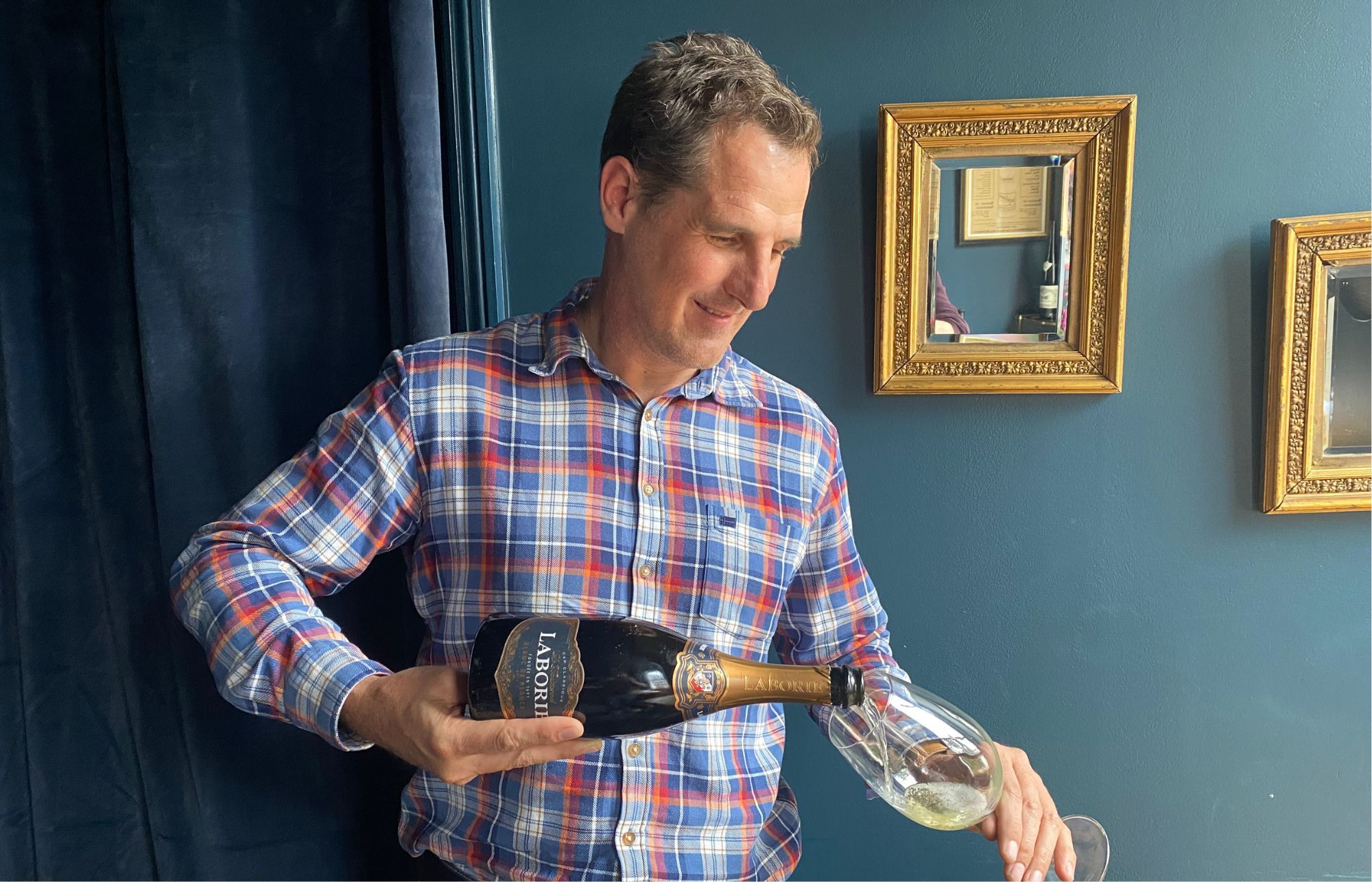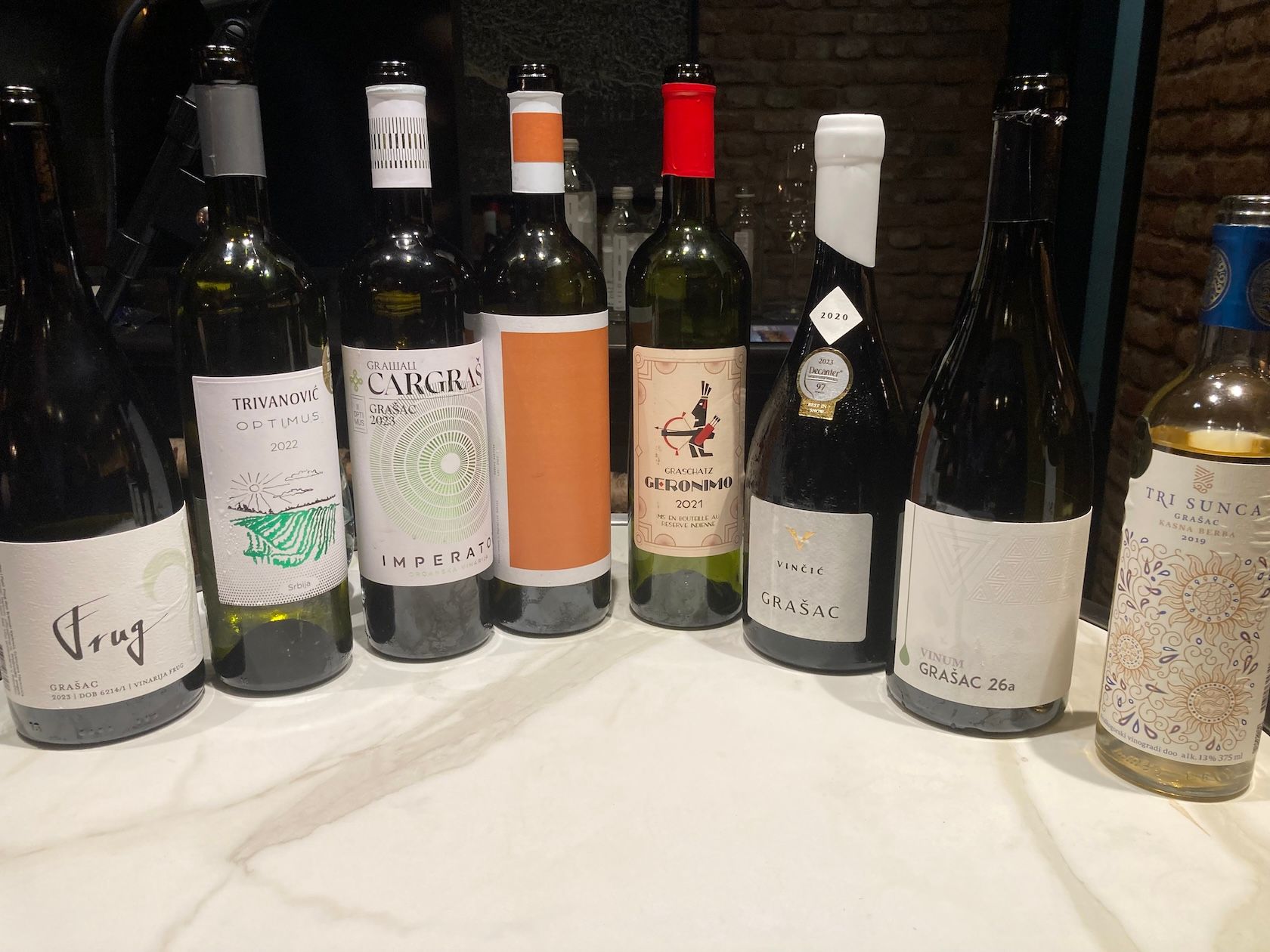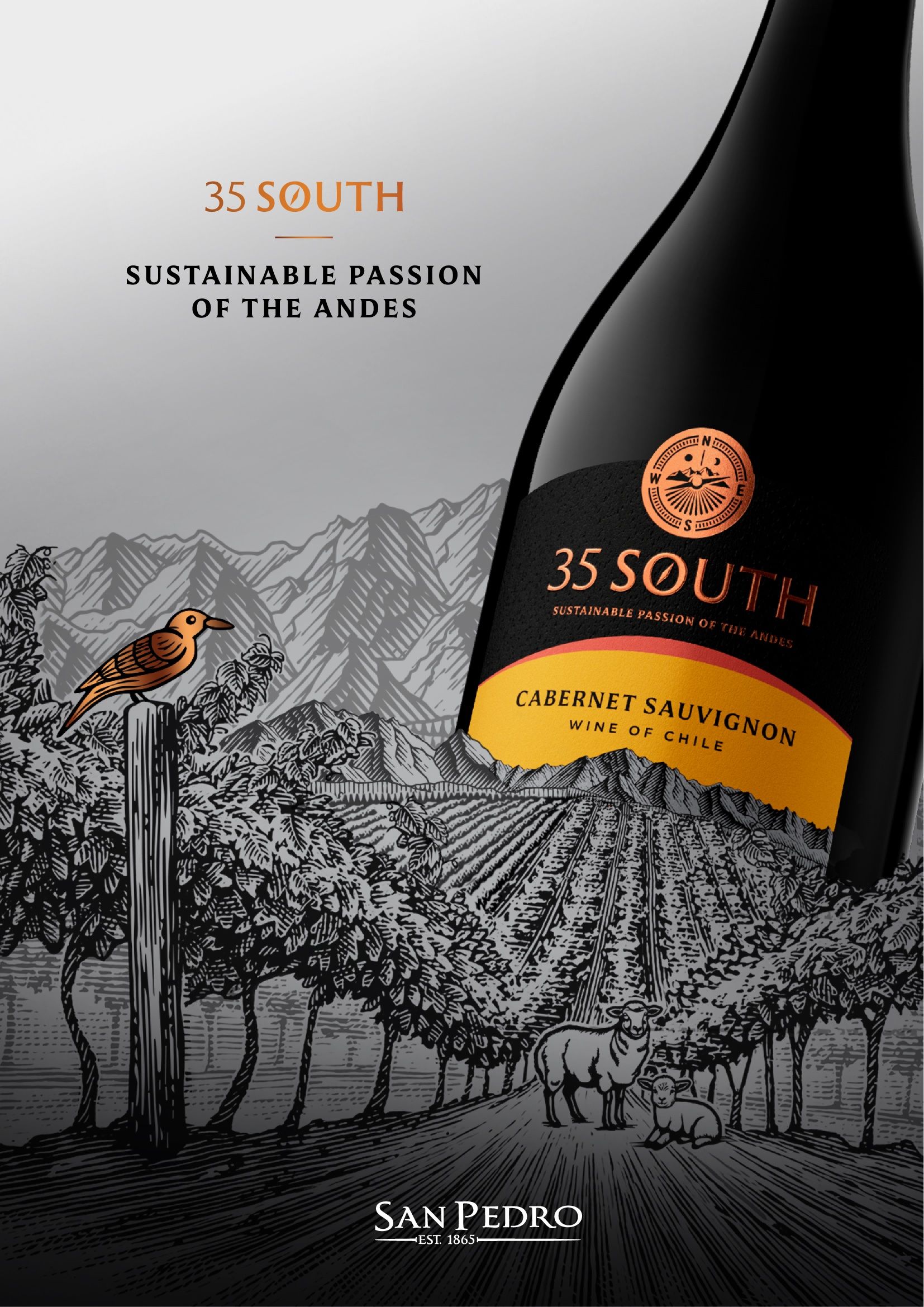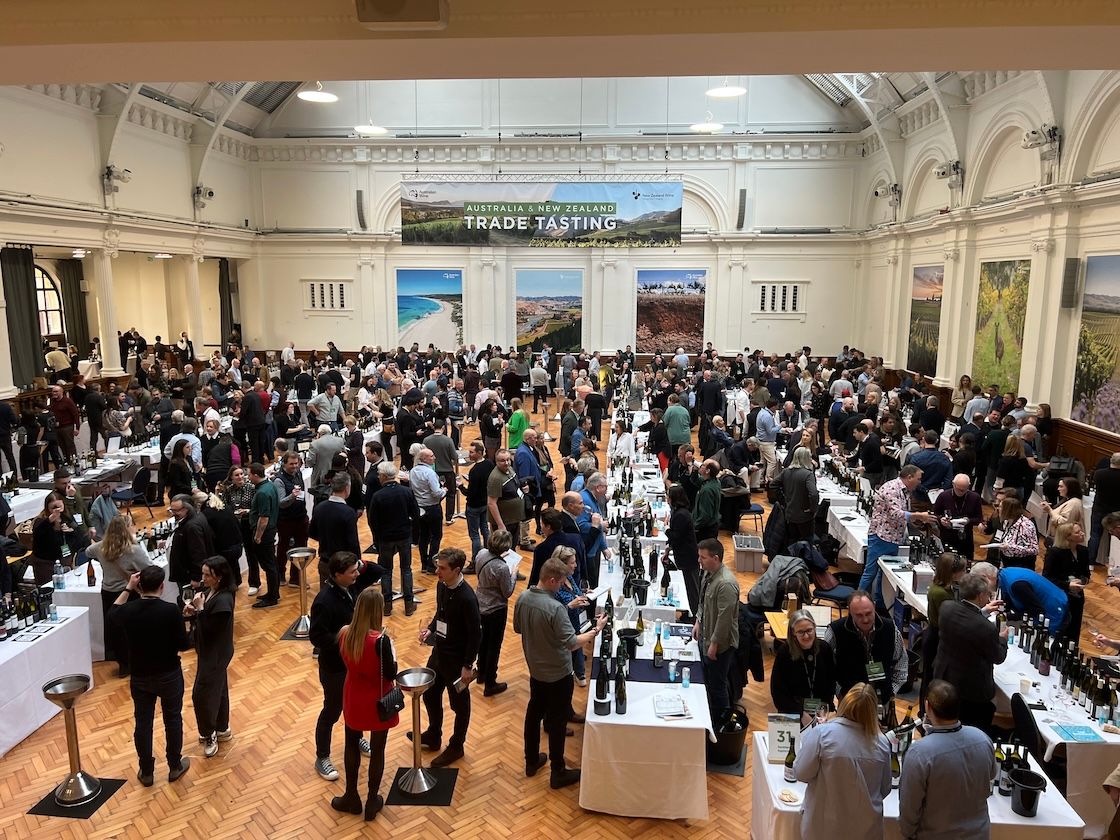“We need to put a big effort into educating our consumers,” says Justin Corrans. “The biggest challenge for our KWV brands is if the consumer will accept new varietals. Certain styles are favourites globally for a reason.”
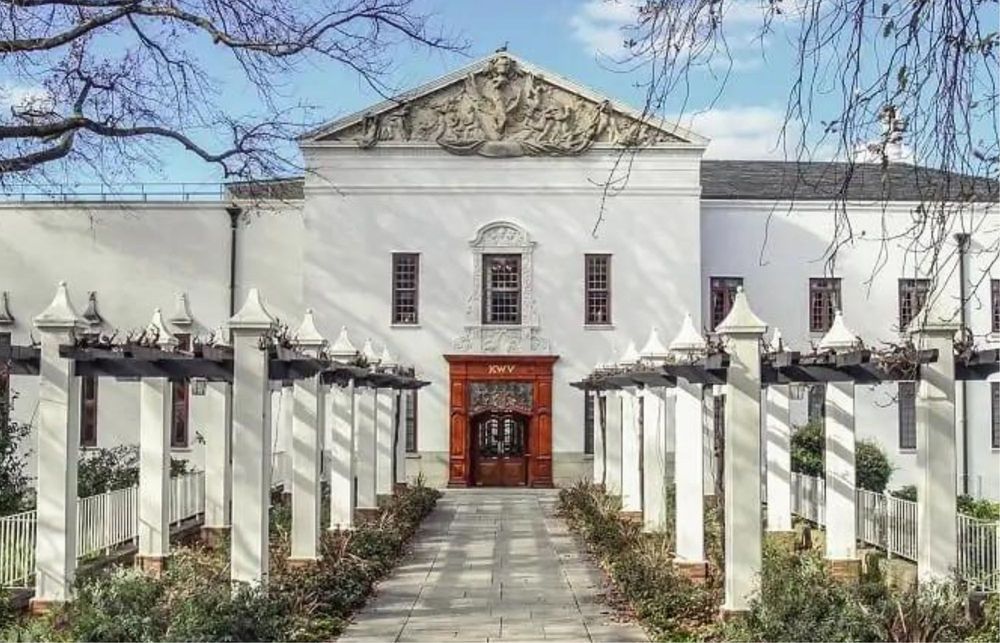
KWV’s Paarl Winery
It feels like one of the most open secrets in the wine world. KWV’s Mentors range and Cap Classique Laborie label are some of the best ‘bang for buck’ wines in the world, let alone just South Africa. Or least that’s how I’ve always felt since first trying these wines about six or seven years ago. I still remember sitting there at the table, with my good friend Joe Wadsack holding court on the virtues of the wines we had in our glasses, and wondering why I’d not come across them before. From that moment on, I never miss a chance to try the new vintages as they come out.
Earlier this summer I got the chance to do just that, as well as sit down with KWV’s newest head winemaker Justin Corrans. Corrans was in town for the Wines of South Africa tasting event the day after and it gave me my first chance to meet the man who took over his new role in the middle of a global pandemic. Although he’d only just landed at Heathrow, he was on great form as we talked all things Mentors, Cap Classique, and KWV’s plans to face the current and future sustainability challenges facing our industry.
Who Is Justin Corrans?
Born and bred South African, Justin Corrans, owes his love of wine to both his wine-loving parents and a fortunate choice of university.
“I wanted to go somewhere far from home and Stellenbosch fit perfectly,” remembered Corrans. “I never realised you could pick a career in wine, and was actually there to study for a BSc in Microbiology. Then I drank more wine, drank better wine, and that was it!”
A swift change of degree course saw him employed by South African industry giant, Distell, after graduation. After 13 years there, and successive promotions to eventually become senior red wine maker, it was time to broaden his horizons.
“I was very lucky to get to spend harvest time in the Northern Rhône, around Ampuis, with the team at Francois Villard, and then out in Sonoma with Jackson Family Vineyards,” recollected Corrans. “It really opened my eyes to the styles, the terroirs, and also the working practices across the world.”
The travel continued with a four-year stint working as a process consultant, mostly to industrial wineries across the world. Based in Murray River in Australia, he also travelled to New Zealand, Oregon, Chile, and the South of France gaining further valuable insights into wines designed with a more commercial aspect with global appeal.
It was after this period that the draw of his homeland proved telling.
“By that time, I knew I wanted to return to South Africa,” he revealed. “I had a long-suffering girlfriend who had put up with me being away for months at a time, and a job had come up in Breedekloof at an old co-op that wanted me to plan and develop brands and a distribution network. It was perfect for me at the time.”
In July 2020, as the rest of the world was heading into lockdown, he was on the move again, this time accepting the role as chief winemaker at the iconic KWV. Taking over under such circumstances proved to have both its challenges and benefits.
“Managing harvesting was quite tough that first year under restrictions,” bemoaned Corrans. “Some regions got the harvest in before the hard lockdown, other regions they had to apply for special permission and health protocols. And even then, although we could finish making it into wine, we couldn’t sell it. But operationally it sped me on as every lockdown meant a new budget cycle. We’d normally do one a year, but ended up doing five in 2021, so I got a crash course into how the way KWV operated.”
Big role to bring consumers along
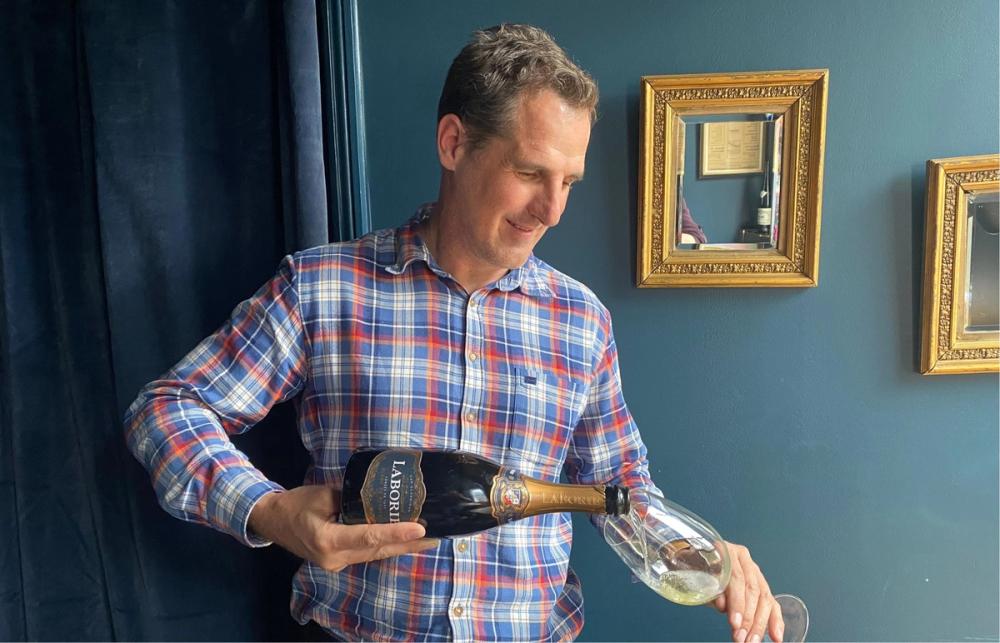
Covering a lot of bases: Justin Corrans, London, July 2023
Now in his third vintage at KWV, Corrans and his team continue to face the ongoing swings in weather patterns with a sly determination.
“The 2023 vintage has definitely been challenging,” reflected Corrans. “Everything was in the stars, we had decent winter rains, relatively cool growing season going into December, January was fairly cool, but then February and early March the rains came and just didn’t let go.”
These supposed freak weather patterns are fast becoming par for the course, and something the global wine industry has to face as part of ongoing climate change. But necessity is speeding up the understanding of viticulture.
“Post 2017, when we had terrible droughts in South Africa, we knew we needed a more scientific approach to water management,” stated Corrans. “Whether too little or too much water at one time, we needed to look at irrigation, we needed to accurately measure and manage water usage in the winery and also educate all our staff on how to do things better.”
The use of technology, such as drones and satellites have helped map out areas under most pressure, and also allowed more targeted planting of varietals, including Chenin Blanc and Rhône varietals in Swartland.
The sustainability theme is hot on the agenda for KWV.
“Finding that balance is one of the biggest issues we have as a big employer in the country,” explained Corrans. “Our packaging is a big issue, as we pack 99% ourselves. Now obviously we’re aware of the carbon footprint benefits of sending bulk over, but that would mean we take jobs away in South Africa. Nothing is ever as straight forward as ‘right and wrong’.”
Across the environment, lifestyle, income, and energy usage, KWV has a big role to play in education.
“We need to put a big effort into educating our consumers,” stated Corrans. “The biggest challenge for our KWV brands is if the consumer will accept new varietals. Certain styles are favourites globally for a reason. We can talk about the use of PIWI varieties to reduce disease and drought pressure in a more sustainable way, but if no one buys it then we don’t go very far.”
Mentors Range continues legacy with new vintage
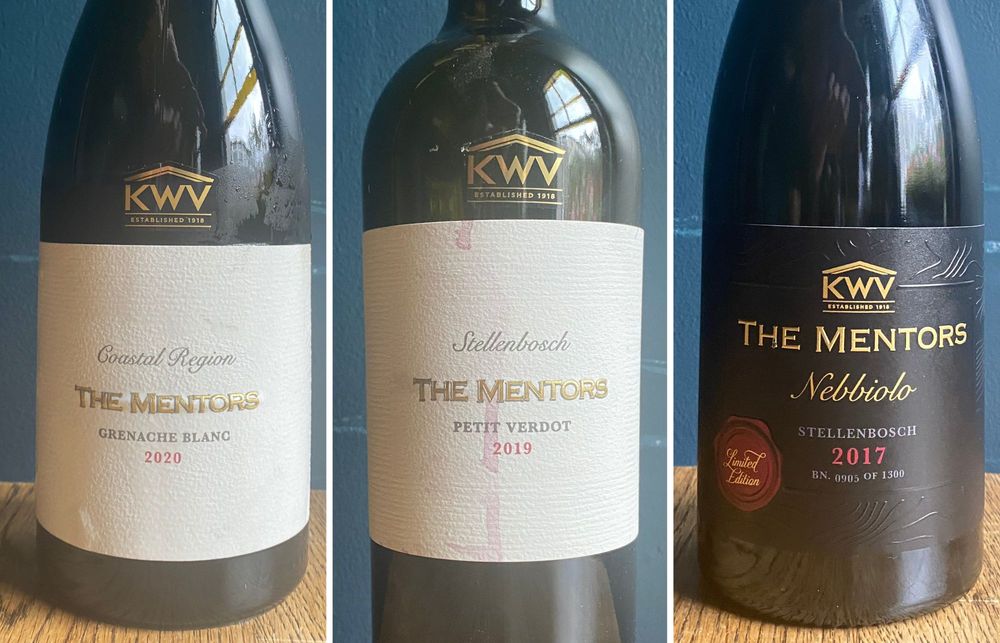
The Mentors Range – proof KWV can play in the premium market
The KWV Mentors range truly has taken on a life of its own over the ensuing vintages. Originally, the range was conceived as a non-commercial project, where the winemakers of KWV could honour their own mentors and those of the South African wine industry. It helped young, hungry winemakers hone their skills with less pressure to produce commercially viable wines for the global market. Or at least that was the theory. It ended up becoming so popular and sought after, that it ended up as a commercial offering, albeit a limited range to fit a more niche market.
Each new vintage is now keenly anticipated by South African wine lovers across the globe.
“Every year it feels like it’s growing, with more demand from everywhere,” reveals Corrans. “It takes a lot of careful brand management and a desire to never compromise on source material. But the effort is worth it. It brings a lot of prestige and shows we play in the premium market.”
The Mentors team is headed by Izele Van Blerk, whose reputation, by now, must surely proceed itself. Her knowledge of the different sites from where they source their grapes is vital to her teams’ output, whether it be the varietal range or the celebrated Orchestra and Canvas blends. They also produce a limited edition each year, and this year’s release is a 2017 Nebbiolo, sourced from KWV’s old experimental vineyard in Helderberg in Stellenbosch. With only 1,300 bottles produced it will be tough to get your hands on too much, but a beauty for the wine geeks out there to see how this mercurial grape variety shows its form on the slopes of Stellenbosch.
Mentors Grenache Blanc 2020
Grenache Blanc is a grape that Corrans believes has been living in the shadow of Chardonnay and Chenin for too many years, but consumers are now really taking it to their hearts. I’ve loved this wine vintage after vintage since its first release and the 2020 is no different. Smokey, lemon, lime, peach, nectarine, ripe apples, fabulous texture and oily viscosity leaving a waxy, citrus and smokey aftertaste. Love it!
Mentors Petit Verdot 2019
Although not a new variety for KWV by any means, this single varietal offering from the Mentors range is becoming a bigger player every year. Stellenbosch fruit from the Helderberg, hand harvested and hand sorted, fermented, then aged for 18 months in French oak with 30% new barrels. The wine is a beautifully inky purple, with deep, plush blueberry, red plums, and violet notes. In the mouth it’s got pretty full but juicy tannins, and leaves a pleasant warming sensation on the finish.
Mentors Nebbiolo 2017 – Limited Edition
Stellenbosch fruit from a 2007-planted vineyard, 200m-300m up the Helderberg. After fermentation the wine was aged for three years in second and third-use French oak, before being left to age in bottle for two years before its release this year. Beautiful light ruby colour as you’d expect from this grape. Popping your nose in the glass you again get the lovely varietal, expressive rose, strawberry, raspberry and red cherry notes. Anyone looking for comparisons with Nebbiolo elsewhere in the world will note a softer, checked tannin structure, but still with that tell-tale bitterness to the finish. Another note, this smelled great about one minute after the bottle was opened, a very useful thing to have going for you if this ends up in someone’s restaurant.
New Cap Classique designed to compete
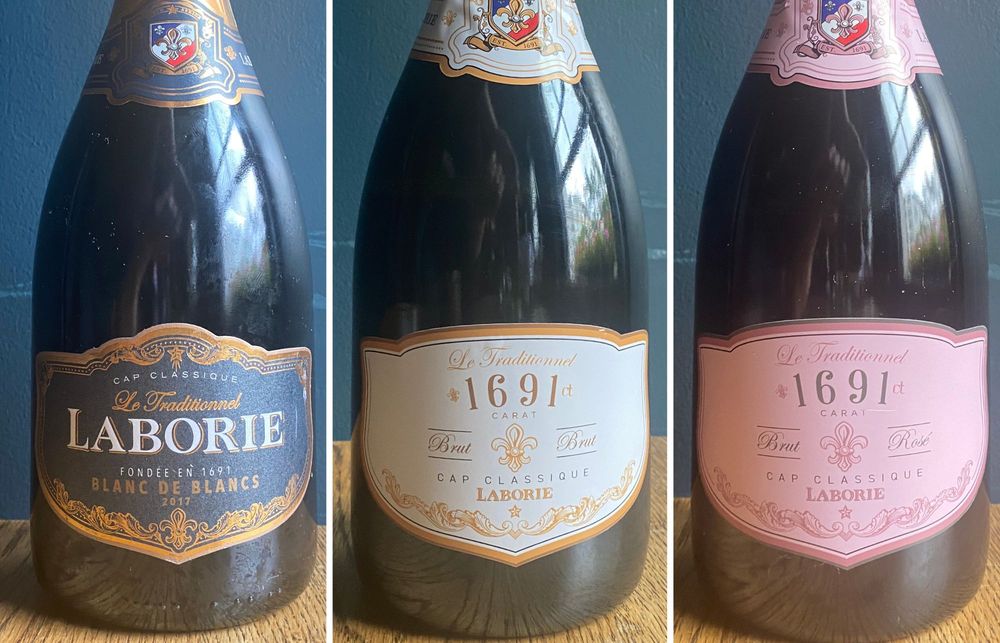
“The best value sparkling wine that money can buy.”
The KWV range boasts what is, in my mind at least, the best value sparkling wine that money can buy. The Laborie Cap Classique, Blanc de Blancs, is 100% Chardonnay from fruit sourced across Paarl and Stellenbosch. It goes on to spend 36 months on lees before being disgorged, packaged up and shipped onto our shelves for an incredible RRP of just £16. If you haven’t tried it, you need to!
Far from resting on that success, the team are now set to release its new, fresher style to the export market. The new 1691 label has a white sparkling from Chardonnay and a rosé sparkling from Pinot Noir, again sourced from across Paarl and Stellenbosch. This time, however, the time before disgorgement is reduced to 18 months, helping with both the fresher style and undoubtedly the cash flow.
“With Champagne now becoming so expensive, we think the Cap Classique is offering the best alternative,” reflects Corrans. “We know in terms of volume that Cap Classique is coming from a small base, but if the category grows, then we all grow and getting to offer a great tasting wine for around £12 retail we hope will help that along.”
1691 Cap Classique White
This wine really delivers on the freshness element, with ripe green apples, lemons and peaches. In the mouth, it’s definitely zingy, but balanced out beautifully by 12g/l of residual sugar. If this can arrive at £12 RRP as they’re targeting, then this’ll fly off the shelves!
1691 Cap Classique Rosé
A blend of Chardonnay, with more Pinot Noir and even a touch of Pinotage (2-3%). Again, it’s the freshness of the fruit that hits home with beautifully fresh strawberry, raspberries, redcurrants. The same residual sugar of 12g/l helps those fruits really open up in the mouth. I can see this being a perfect after-work pour to liven up after a long, boring Wednesday!
Yours, Mindfully to target market demand
I asked Corrans about future plans for KWV. He struggled to hide his enthusiasm for a quirk of their long legacy in the South African wine industry.
“We’re sat on pretty decent stocks of old fortified wines in barrels,” enthused Corrans. “At some point I’d love to put together a really nice tawny port. I know it’s not a growing category, but the wines are fabulous and the history means it’s got every chance on the market.”
The immediate future for KWV, however, lies in their Yours, Mindfully range of lower alcohol wines from Chardonnay and Shiraz.
“We’re a consumer-focused company, and we really make a huge effort to listen to what our clients want,” explained Corrans. “We’re all more conscious about what we’re drinking. We want refreshment and something nice to have in the glass during the week. That’s the aim here.”
Creating lower alcohol wines is never straightforward, with the benefits of alcohol removal often negated by additions to balance the end product. It was something KWV were mindful to avoid.
“Yes, it’s lower alcohol option, but we knew we needed try to avoid the bump up in sugar,” continued Corrans. “We targeted specific plots that we knew could over-deliver on fruit and freshness, but that would be out of balance with the alcohol when we made it. Then we remove the alcohol to bring it back into balance, and still retain the varietal character.”
Yours, Mindfully Chardonnay 2022
No way of getting away from it, this walks like a Chardonnay and quacks like a Chardonnay, albeit a very ripe one. The nose of fresh ripe peaches, pineapples, mangoes is perfectly appealing and, although off dry in style, the balance is as Corrans and the team are aiming for. I could definitely imagine taking a bottle of this down to my favourite BYOB in Brick Lane or Rusholme.
Perfect options for building your lists
As Corrans pointed out, KWV is nothing if it’s not consumer focused. As much as a good deal of their portfolio is targeted at multi-retailers, the Mentors range and Cap Classique offerings show that they are also extremely relevant to restaurants and indies throughout the country. For anyone short of South African options on your list, these are ready made crowd-pleasers that will have even the most fastidious of clients coming back for more.
The wines of KWV are imported to the UK by North South Wines. For more information about KWV and its wines, please contact Eleanor Standen at R&R Teamwork on eleanor@randr.co.uk
Mike Turner is a freelance writer, presenter, and educator and regular contributor for The Buyer. He also runs a wine events business, Feel Good Grapes, that explores and discusses the idea of sustainability in the wine trade.
